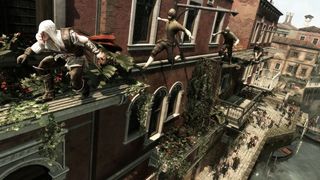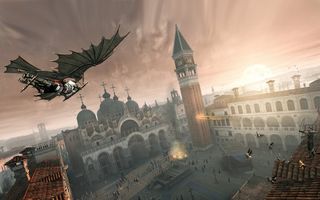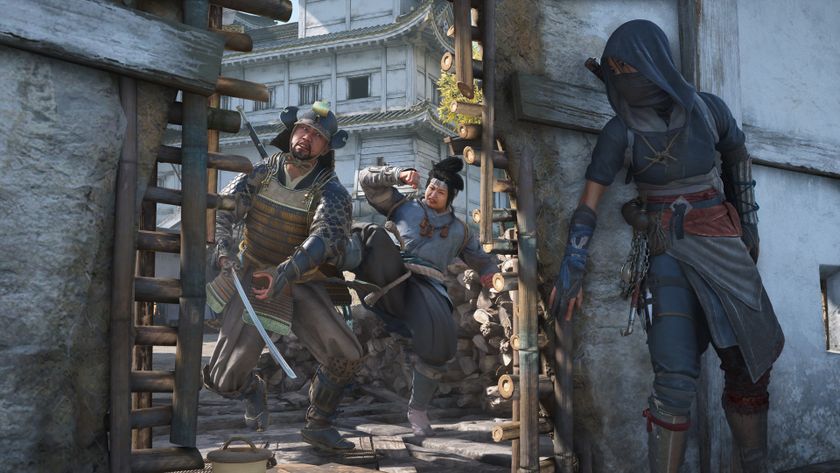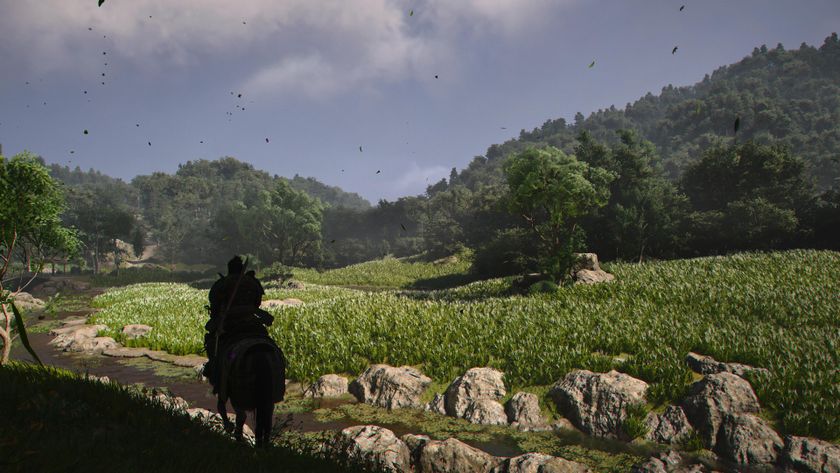Why Assassin's Creed II is one of the greatest games ever made
Requiescat in pace, Templars
On top of that, AC2 was host to one of the most richly detailed worlds we've ever had the pleasure of exploring. Virtually recreated cities such as Venice and Florence were populated with lifelike NPCs whose diversity far surpassed that of the NPCs in the original. You could even deal with guards in new ways thanks to hirable groups of mercenaries, thieves, and courtesans, and these elements together allowed the franchise's promise of social stealth to become fully realized. Blending in with a crowd in AC2 was a far less frustrating experience than trying to blend in with sparse groups of monks dressed in Altair-esque outfits in its predecessor.

The mere act of climbing buildings was more enjoyable, too, thanks to a noticeable increase in scaling speed. Ascending structures no longer meant hitting the climb button and walking away to make a sandwich--this also made hunting collectibles less of a chore. In fact, some--the hidden glyphs that could only be seen using Ezio's Eagle Vision--even provided teasing glimpses of the story's sci-fi side, propelling a desire to find each and every one. What's more, many buildings in the game were modeled after places that actually existed. Visiting these was rewarding in its own right, but, much to the delight of Renaissance test-takers everywhere, an in-game historical database had us soaking up tons of little factoids about them (as well as key historical figures), which enriched the experience as a whole.
So, too, did AC2's economy, an addition that allowed players to loot bodies while providing them with in-game currency through the rebuilding of Monteriggioni, a countryside villa belonging to the Auditore family. This upgradable hideout became Ezio's equivalent of a Batcave. All of the weapons you had acquired were housed in a display room; renovating shops scored discounts on equipment and had a noticeable effect on the way the villa looked, as well as the sort of people that populated it. Most importantly, Monteriggioni became a showcase of everything Ezio--and you as the player--had accomplished. It was both an enjoyable distraction and a constant reminder of just how much you'd risen from the proverbial ashes.

Then came that crazy left-field ending. It took such a jeering sci-fi turn that everyone who finished the game likely murmured WTF in unison with Desmond's closing statement (hint: it consists of those same words). While some didn't particularly care for the way AC2 slapped them upside the head with a cliffhanger, it left many players feverishly anticipating the next game in the series--so much so that Ezio got two more major outings: Brotherhood and Revelations, both of which were pretty darn good.
Games like Assassin’s Creed II--ones that so masterfully combine storytelling and engaging interaction--are a rare breed that deserve celebration. From its unforgettable story and protagonist to its combat and world-building tweaks, it bested the original in every regard, even bringing a layer of freshness to the series with the inclusion of an economy. It's a shining example of the level of quality that all games--sequel or not--should strive to achieve. Now the question remains: Can Assassin's Creed III surpass the bar set by its younger sibling?
"Why _____ is one of the greatest games ever made" is a weekly feature that goes through GamesRadar's list of the 100 best games of all time and highlights different titles, explaining why they're on the list, what makes them so amazing, and why we love them so much.
Sign up to the GamesRadar+ Newsletter
Weekly digests, tales from the communities you love, and more
Ryan was once the Executive Editor of GamesRadar, before moving into the world of games development. He worked as a Brand Manager at EA, and then at Bethesda Softworks, before moving to 2K. He briefly went back to EA and is now the Director of Global Marketing Strategy at 2K.

Assassin's Creed Shadows devs "actively looking at" an even harder difficulty mode for the RPG: "How challenging do you want it?"

Assassin's Creed Shadows' delays were mostly used to polish the RPG, creative director confirms, not for deeper changes brought about by Star Wars Outlaws reaction











